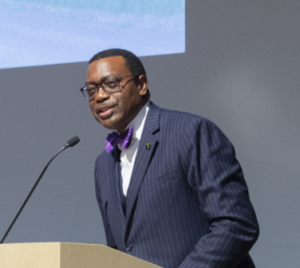The African Development Bank (AfDB) has predicted that African economies will remain resilient with a stable outlook in 2023-2024, despite the tightening global financial conditions.
The bank made this forecast in its latest Africa’s Macroeconomic Performance and Outlook (MEO) 2023 report estimated that Africa’s average GDP would stabilize at 4% in the next two years, up from 3.8% in 2022.
Presenting the report on 17 February on the sidelines of the 36th African Union Assembly in Addis Ababa, Ethiopia, AfDB’s chief economist and Vice President, Kevin Urama, said that the continent could benefit from high demand for its commodities as countries seek alternatives for food and energy in response to disruptions caused by the war in Ukraine.
He noted Africa remained a treasure trove for smart investors globally, but it must strive for higher growth rates, more inclusive economies, and greater resilience to external shocks.
Urama expatiated: “The stable outlook projected for 2023–2024 reflects the continuing policy support in Africa, global efforts to mitigate the impact of external shocks and rising uncertainty in the global economy.”
To realize the projection, the development finance banker charged African leaders to bold policy actions in order to meet the significant financing gaps in Africa, it is imperative to enact policies that can mobilize and leverage private financing for development in Africa.
While noting that the unfavorable global conditions have led to rising inflation, higher debt servicing costs and increased risk of debt distress in developing countries, including Africa, Urama lamented that “as in many emerging market economies, tightening financial conditions and the appreciating US dollar have had dire consequences for most African economies.
Also, he noted that it had also become difficult for African countries to access international capital markets for new financing.
With most African currencies, especially in commodity-exporting countries, loosing substantial value against the dollar in 2022 due to monetary policy tightening in the US, the AfDB’s Vice President cautioned that currency weaknesses in Africa’s more globally integrated economies, such as Algeria, Kenya, Nigeria, and South Africa, may persist in 2023.
He said: “Key drivers of the currency depreciations include the tightened global financial conditions and weak external demand, macroeconomic imbalances, constrained revenues and weak investment flows, and political risk aversion associated with countries’ election cycles.”
Urama recalled that African countries’ fiscal positions had already been stretched by Covid-19 policy responses and support for vulnerable populations against rising food and energy prices amid high debt, the impacts of climate change and the spillover effects of rising geopolitical tensions, particularly the Russian invasion of Ukraine.




